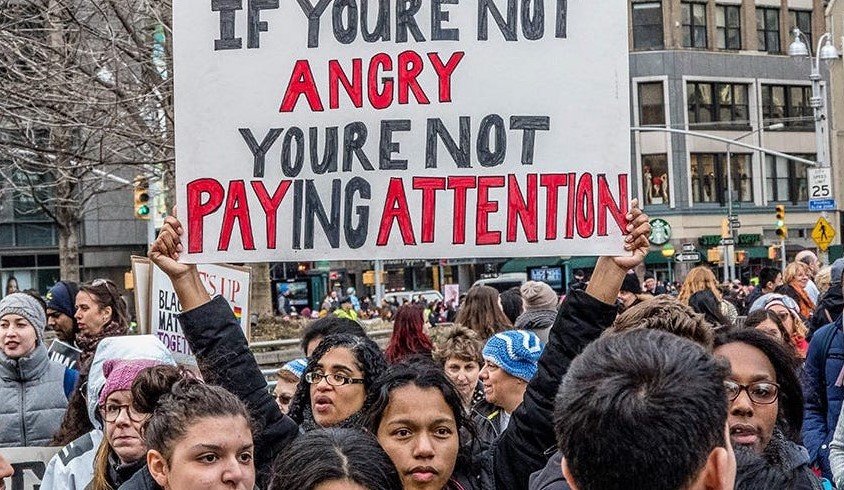Participant fired after shocking remarks about autocracy, Nazi ideology during heated debate with Mehdi Hasan
A debate video posted by popular YouTube channel Jubilee has ignited a firestorm across social media platforms after a participant casually and unapologetically identified himself as a fascist—on camera, in front of millions. The fallout was immediate and intense, both online and offline. The man, known only as Connor in the video, says he’s already lost his job.
The episode, posted Sunday, was supposed to be just another addition to Jubilee’s growing archive of “Middle Ground” debates, where people from opposing ideological camps sit face to face and argue their views. But this one—featuring British-American journalist Mehdi Hasan against a panel of 20 self-identified far-right conservatives—was different. Shocking, even.
The Exchange That Sparked the Outrage
Things escalated during a roughly seven-minute segment between Mehdi Hasan, formerly of MSNBC, and Connor, who described his political views in ways that left audiences stunned.
Connor advocated for an autocratic U.S. government, praised the far-right Nazi-era legal philosopher Carl Schmitt, and went as far as to downplay the Holocaust. “There was a little bit of persecution,” he said, referring to the mass genocide of six million Jews.
Hasan, visibly startled, asked, “You’re a fan of the Nazis?”
Connor replied without hesitation: “I, frankly, don’t care being called a Nazi at all.”
The comment spread like wildfire across X (formerly Twitter), Reddit, TikTok, and YouTube itself. Clips were reposted thousands of times, many calling out both Connor’s remarks and Jubilee’s decision to platform them in the first place.

Job Lost, Internet Divided
By Monday, Connor was back in the spotlight—this time, not as a panelist but as the subject of workplace controversy. In a follow-up post on X, he claimed his employer had terminated him as a result of the video’s circulation.
“I got fired for expressing my political beliefs,” he wrote, prompting a polarizing wave of replies.
Some users called the firing justified, saying it’s a consequence of public hate speech. Others argued it raised uncomfortable questions about free speech and cancel culture—even as they condemned his views.
The details of Connor’s former job and employer remain unclear, and no official statement from the company has surfaced yet.
What Is Jubilee—and Why Are They Under Fire?
For years, Jubilee has built its reputation around staging challenging political, cultural, and social debates with a Gen Z and Millennial audience in mind. Their videos routinely rack up millions of views. It’s part Ted Talk, part YouTube shock theater, with a bit of reality TV thrown in.
But critics now accuse the channel of veering into dangerous territory by allowing unfiltered hate speech under the guise of open dialogue.
• “This isn’t debate—it’s reckless amplification of extremism,” one user wrote on X.
• Others pointed out that giving a platform to someone who minimizes the Holocaust could normalize fascism to younger audiences.
• “You can’t just throw fascism into a ‘both sides’ debate. That’s not journalism. That’s a circus,” a prominent media ethics scholar posted.
Despite the backlash, Jubilee hasn’t taken the video down as of Wednesday morning. They haven’t issued an official statement either, which has only fueled the outrage.
Mehdi Hasan Responds: “This Is Not Normal”
Mehdi Hasan, who left MSNBC in early 2024, has been vocal in responding to the video’s reception.
On Monday, he posted: “Just a reminder: calling for fascist autocracy and minimizing the Holocaust is not a ‘hot take.’ It’s dangerous, and it’s not something we should ‘debate’ for clicks.”
Hasan’s supporters rallied behind him, praising his restraint and clarity during the taping, even as some questioned why he agreed to participate in a format that lumps fascism alongside mainstream conservatism.
Still, Hasan’s presence gave the video credibility for some viewers. Others felt it was a bait-and-switch—luring audiences in with his name, only to expose them to extreme rhetoric with no filter.
Social Media Reacts: Echo Chamber or Wake-Up Call?
Reactions across platforms have run the gamut—from disgust to mockery to more troubling expressions of support for Connor’s views. That last part has some experts worried.
“What’s most disturbing isn’t just that he said it, but how many young men online agreed,” said Dr. Eliza Ginsburg, a political science professor studying online extremism. “This isn’t a fringe thing anymore. It’s entering mainstream discourse through platforms like YouTube.”
And that’s what makes this episode different. It’s not just about one extremist voice. It’s about the machine that gives those voices a stage—and how quickly that stage can become a megaphone.
What’s Next for Jubilee?
While Jubilee has weathered controversy before—mostly around politically charged guests and inflammatory editing—this incident may mark a turning point.
Sponsors could pull out. YouTube could restrict monetization. Public trust, especially among younger and more diverse audiences, may erode.
There’s also a growing call for clearer editorial responsibility. “Not every conversation needs to be ‘platformed’,” said media critic Nia Caldwell. “Jubilee can’t keep acting like it’s just a neutral host. You make choices when you choose who gets a mic.”
But the biggest question remains: where is the line between free speech and dangerous speech, and who gets to draw it?








